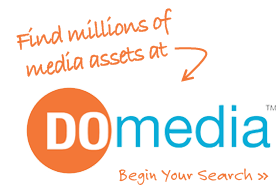
I cringe sometimes when I hear Out-of-Home described as a “Traditional” Media.
Context matters, of course, as the “Traditional” label can signify longevity and a strong foundation on which to build. It can also imply that our industry is stuck in the past – like we haven’t changed since big tobacco had the Malboro man plastered on every bulletin from New York to LA.
The fact is that OOH is beginning to do some very “non-traditional” things.
One of the hottest trends heard in agency boardrooms and industry panels is programmatic buying. The official definitions of programmatic read something like, “The use of machine-to-machine operations to automate the buying and selling of advertising space.”
As I see it, the following issues must be overcome before programmatic buying and selling will account for a meaningful percentage of overall OOH ad spend:
- Digitization of OOH inventory
- Real- or Near-Real-Time access to Inventory
- Standardized Planning and Buying Currencies
- The Construction and use of Buying Algorithms
(1) There is no doubt that OOH operators are converting huge amounts of static inventory to digital. Digital Place-based has also emerged as a meaningful category. We lack some standardization around ad units, and there aren’t too many networks large enough to compete with other reach media on their own, but the shift is happening and is likely to accelerate.
(2) Vistar, NEC Vukunet and others seam to be leading the charge in this arena, as they have built and maintain APIs into content and sales management systems. It is tough to be on the ‘bleeding edge’, but the work is noble and I hope that they succeed in bringing transparency and accountability to the digital place-based segment.
(3) The TAB’s OOH Ratings are a great step in the right direction, and their recent decision to “open up” access to the data cloud to 3rd party technology partners is another huge leap forward. The DPAA has done work here in the past, and Nielsen and Arbitron have developed meaningful business segments auditing “Traditional” as well as digital OOH media. Universal trust and consistent usage remains an issue, but we are (again!) moving in the right direction.
(4) The technology certainly exists today to build out these algorithms. In fact, DOmedia took the industry’s first algorithmic planning and buying tool to market 5 years ago. The fly in the ointment is not on the technical side, it’s behavioral. In an industry where experience and relationships are strong currencies, the idea of turning over decision-making responsibility to a series of algorithms is unsettling if not outright terrifying to many “traditionalists”. To these folks I’m here to reassure you – we have a ways to go before “black boxes” are doing all of our planning, buying, and selling.
There’s a famous quote attributed to Roy Amara that says, “We tend to overestimate the effect of a technology in the short run and underestimate the effect in the long run”. My personal opinion is that this is the primary reason why so many companies have fizzled out trying to bring systematic and programmatic buying and selling tools to market. They underestimate the behavioral inertia of agencies, brands, and media companies, and they overestimate the impact their first, second, and third renditions.
There will be an inflection point in the not-so-distant future for programmatic. I’ve outlined a few key issues you can monitor to help you predict the timing. Whatever your outlook, consider this:
If “Amara’s law” holds true, we are in for an exciting and unexpected programmatic future!




